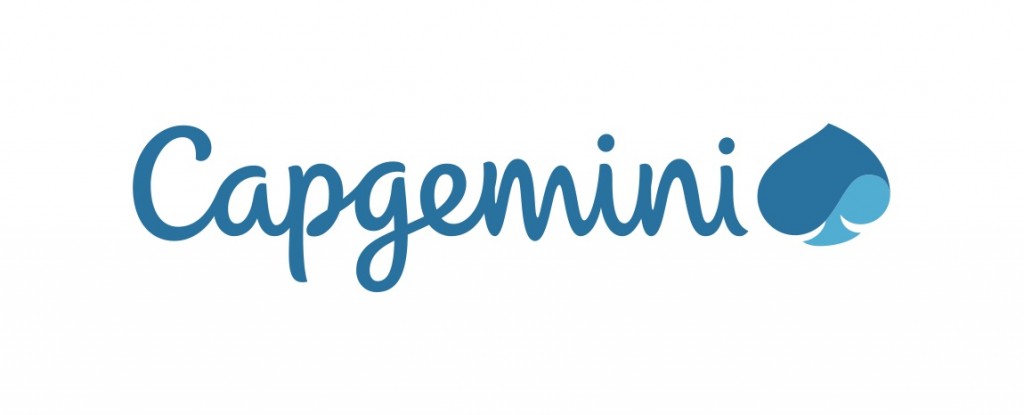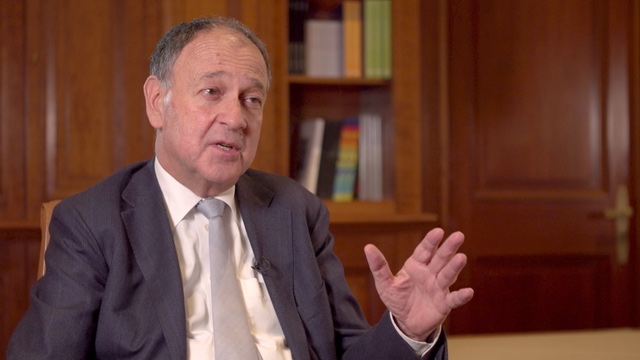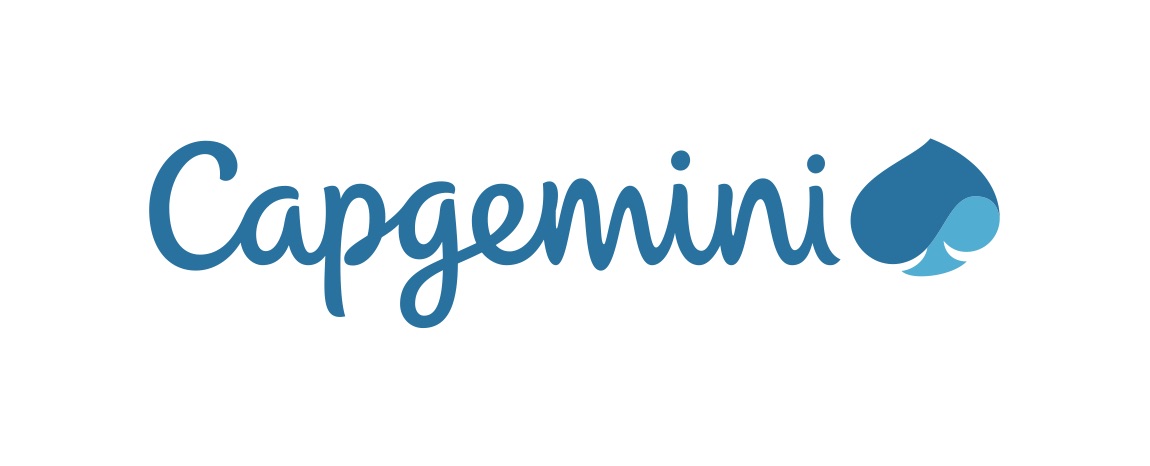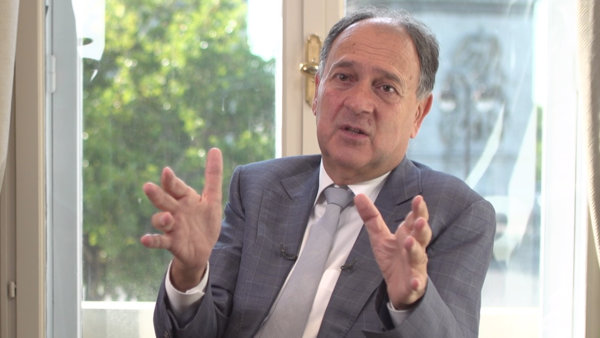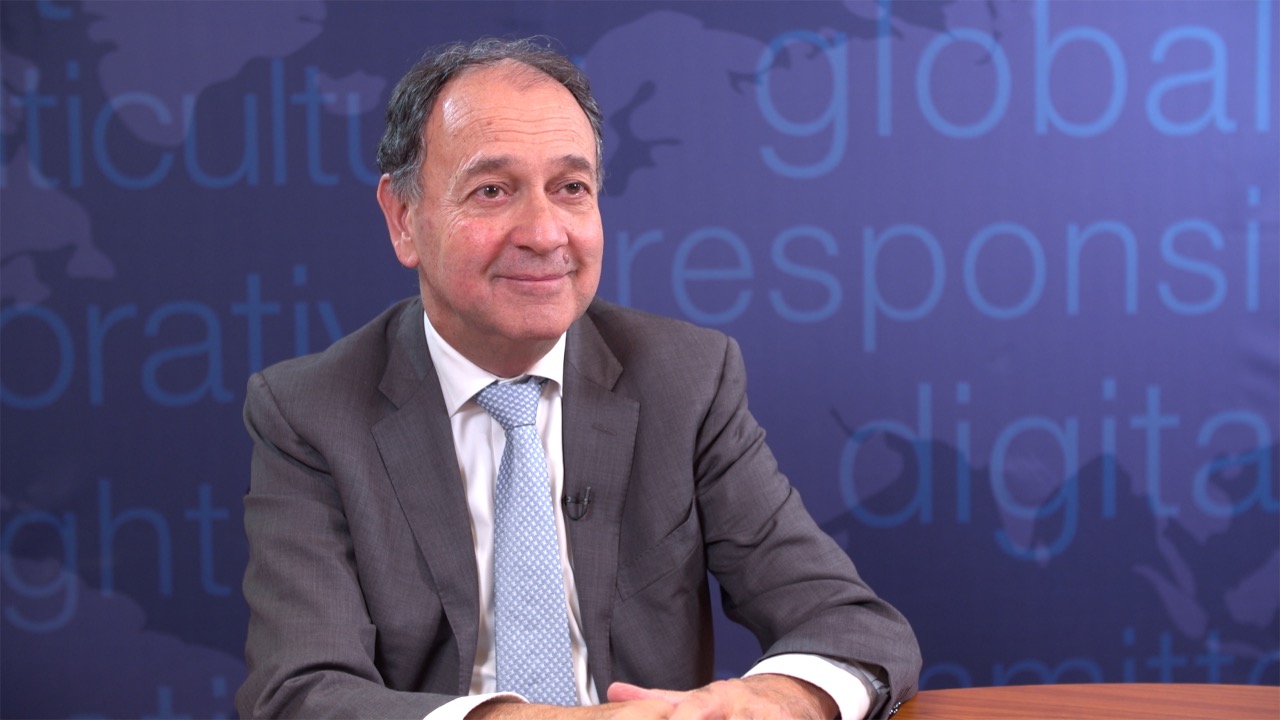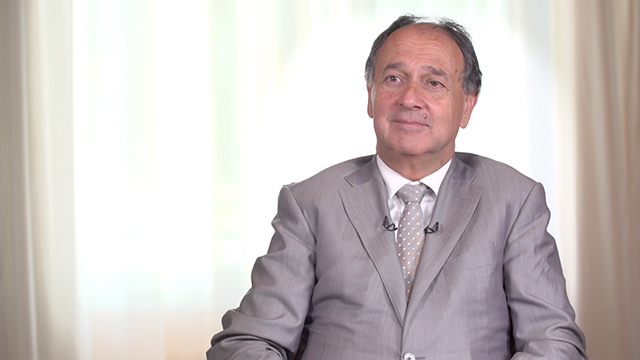EuroBusiness Media (EBM): Capgemini, one of the world’s foremost providers of consulting, technology and outsourcing services, reports results for the first half of 2016. Paul Hermelin, welcome. You are the Chairman and CEO of Capgemini. You posted some very good results and you raised your full-year margin guidance, what can you tell us about this performance?
Paul Hermelin: The first half was quite satisfactory, a good performance in the first half. I’m pleased with the growth: 14%, a little more including the IGATE acquisition, which we said we’re going to now publicise, the revenue at constant currency. So good growth, extremely good margin progression, frankly, above expectations, certainly above the consensus what the analysts expected, strong net profit improvement, and a good cash collection. So on every front it was certainly a good half year.
Based on that, we should look a little more in detail to say what went notably very well was Europe. Europe has provided big growth. And notably, to everybody’s surprise, Continental Europe even better than the United Kingdom (we’ll speak about the UK a little later). So France is doing well and we have the confirmation, and the acceleration of superb results in Germany and Northern Europe, the Nordic countries. So, the group is sitting on very frank, solid initiative.
Another thing I’d like to point out and to stress is that we are doing very well in the reorientation to Digital and Cloud. On Digital and Cloud, we now report for H1 a growth of 32%, and Digital and Cloud now represent 28% of the group. So it’s a big adaptation to a massive market shift. The group has two weapons: Offshore that we master better than any European player, and Innovation (with Digital and Cloud) and I think we have performed very well on these two fronts.
EBM: Now let’s take a deep dive geographically. What can you tell us about your strengths and weaknesses in the different geographic zones?
Paul Hermelin: The first point is NA: we have a big growth, more than 30%, mainly because of the IGATE acquisition. Organically, a little less good. Notably we recorded a real slowdown, a real freeze of investments in the energy sector; that’s of course related to the oil and gas prices. When you discount oil and gas, we still grew 5% in North America, but with oil and gas, and notably because of one large contract that was stopped because of a disposal of a major department, we have a healthy US, a good situation and we think we are going to accelerate in the second half. So, healthy US, one damaged sector.
If I now look at Asia Pacific, extremely good situation, double digit growth, double digit margin. So very good results.
Latin America: the Brazilian situation is still a concern for everybody, and for us, and that weighs on our result, but it’s small. Latin America is a very small percentage of our mix.
Now, let’s turn to Europe. Let’s go a little further. UK: good results, good progression, and the public sector is now half of our results. As I said, France: more than 4.5% growth in H1. That’s unusual for France, so we can be proud of that. We certainly beat the market. And then, at the forefront of growth, Nordic and Germany, in both cases with extraordinary offshore leverage, i.e. number of people that work from India, more than 60% in Nordic, close to 60% in Germany. So the Offshore transition is behind us there. And good results in Italy, less good in Iberia and Spain. But overall, a pretty strong Europe.
And then you can think, will it last in the second half? So first, we monitor the situation in the UK after the vote on the famous Brexit. So far, we haven’t recorded any change, any intent to slow down investment. But we monitor the situation very, very carefully, and things may change. We are exposed there. Half of our UK business is public. I would not expect public cuts, but we are exposed to financial players, large banks, we are exposed to retail, which might be cyclical, so we monitor the UK – so far so good. Then, could the European situation be impacted by a UK change of mood, economic direction? Possibly, so we have to be careful. That’s the reason why, in spite of a very good first half, we maintain the full-year guidance as we defined it in February: 7.5% to 9.5% at constant currency and we think we’re going to deliver it.
EBM: Speaking of guidance, you just raised your full-year margin guidance. Why take such a confident approach and what are the drivers behind the margin?
Paul Hermelin: The first point is, in H1, I think we are closer than 40 bps above the consensus, so maintaining the guidance, I don’t think the investors would have believed that we could maintain it. Why? Because our Offshore machine delivers and delivers very strong margin progression which we can measure in all the geographical zones where we use Offshore, and we report margin per geography. Second, innovation is accretive and when we grow by 32% around Cloud and Digital, we know there is innovation that will bring some margin upside, Industrialisation… So I think all the engines for margin progression are there.
So we are prudent, because we know a little the uncertainty about the second half. But based on H1, based on what we see and, on top of that, based on the early synergies we delivered from IGATE, we raised the guidance by 20 bps. So we used to claim a margin that would reach between 11.1% and 11.3%, and we now are confident with a margin that will be within the range of 11.3% to 11.5%; so a transition by 20 basis points. In spite of the good cash collection of H1, we know the bulk of the cash collection will come in H2, so we maintain the guidance as we expressed it in February, more than €850 million of free cash flow generation.
EBM: Where do things stand today on the integration of IGATE?
Paul Hermelin: I think the IGATE integration is now pretty advanced. There are still a lot of things to do, notably the merger of all the legal entities, bringing everybody on the single system will only be completed by year-end. But I would just say that in terms of people, involvement, account protection we did quite well. Something that is quite nice, we looked at the top ten accounts of IGATE and they grew by a high single digit. So we maintained the momentum of the IGATE key accounts. So IGATE is good for the group and accretive to the group.
This being said, we have a lot to do. We have delivered instant cost synergies, and earlier than we thought we would, so that’s done. We are on track for the revenue synergies. But on top of that, we have committed to the market the transformation of our operating business model, taking advantage of the very lean, frugal model of IGATE – that’s still to be done. I’m very confident we will deliver the expected benefits. But that will last 3 years – 2016, 2017, 2018 – and on that, too, we are quite advanced.
EBM: And beyond IGATE, is any further M&A activity back on the agenda?
Paul Hermelin: We said we should be quite advanced in the IGATE integration, so I would just say that we will have reached that level of comfort probably by year-end. This being said, if the Brexit consequences prove heavy and if the economy proves weak, we will be prudent. My priority today is to do targeted acquisitions in the Digital and Cloud space, all on innovation, which are not necessarily large targets, large units. It can be small units that I would call more jewels, the string of pearls that we talked about a few years ago more than large entities.
EBM: And finally how do we enter Q3 according to you?
Paul Hermelin: At this stage, our operational people are rather optimistic. The pipeline is extremely solid and even for Q3 that usually seasonally is not the best (it’s the European summer), I have seen projection forecasts that are quite high, so my feeling is people are optimistic. There is a large number of sizeable prospects, so my view is we are rather in a good shape.
In Europe, there is a big appetite for Digital, a big appetite for Offshore and consolidation and cost effectiveness, so Europe should be good if the political uncertainties do not climb too rapidly. In the US we will recover, I think from H1 we will see an acceleration or at least the energy sector will weigh less because it started slowing down last year. So the comparables are better. So I’m rather optimistic for H2, and I think we will deliver the guidance with no uncertainty and no concern.
EBM: Paul Hermelin, Chairman and CEO of Capgemini, thank you very much.
Paul Hermelin: Thank you.

